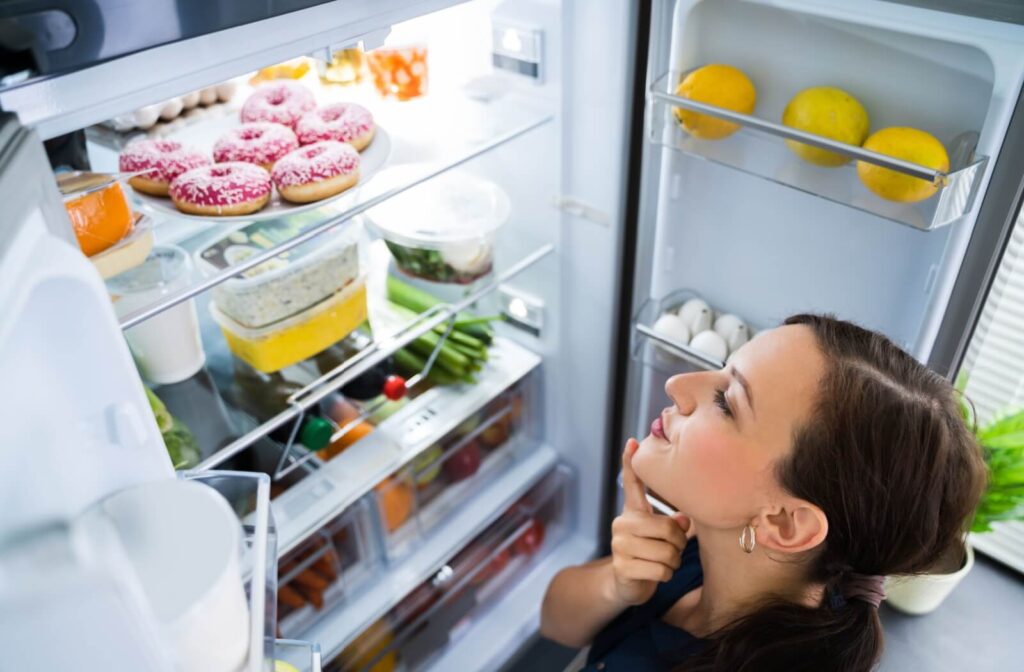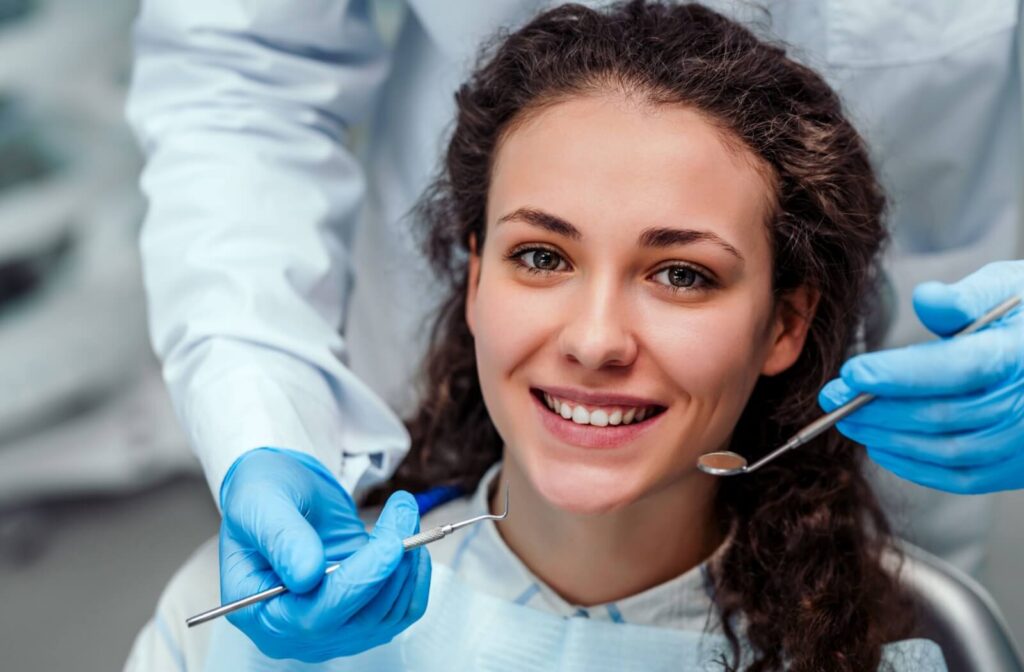
Regular dental cleanings are essential for maintaining a bright and healthy smile, but if you’ve just left your hygienist’s chair and are craving a post-appointment snack, you may be wondering—how long should you wait before eating?
If you’ve had a fluoride treatment, you should wait at least 30 minutes, or however long the dentist tells you. Understanding the steps of a dental cleaning and what happens during the treatment will help you prepare for your next visit and keep your teeth feeling fresh and healthy.
What Happens During a Dental Cleaning?
Dental cleanings are far more than a simple polish! They’re a multi-step process designed to remove plaque and tartar while protecting your teeth from potential future damage. Here’s what usually happens during a cleaning appointment:
- ExaminationBefore jumping in, your dental hygienist will examine your teeth and gums with a small mirror. They’ll look for signs of cavities, gum disease, or other oral health concerns that may need attention before or after the cleaning, and will make a note of anything that needs to be monitored.
- Removing Plaque and Tartar

- Using a specific dental tool called a scaler, your hygienist removes built-up plaque and tartar, especially from those tricky spots your toothbrush can’t quite reach. This is an important step, as tartar can only be removed by dental professionals. This is why brushing and flossing daily are so critical to oral health, since plaque can harden into tartar in just 24 hours.
- Professional Brushing and PolishingOnce the scaler has done its job, your teeth are polished with a dental electric brush and special toothpaste. This step gives your teeth that “just cleaned” feeling while smoothing their surface to prevent plaque buildup.
- Flossing and RinsingNext comes flossing to remove any lingering debris, followed by a thorough rinse to wash everything away.
- Fluoride TreatmentFor the final step, most hygienists apply fluoride, a mineral treatment that strengthens enamel and protects teeth from cavities. Fluoride treatment often involves a gel or foam applied via a mouth tray or painted directly onto the teeth. Regular fluoride treatments are essential to your oral health but require waiting before eating or drinking.
Why You Shouldn’t Eat Right After a Dental Cleaning
That fresh, clean feeling after a dental cleaning isn’t just for show—it’s the result of removing built-up residue and protecting your teeth with fluoride. Here’s why you should hold off before digging into your next meal:
- Maximizing Fluoride Benefits: Fluoride needs time to interact with your enamel, so eating or drinking immediately can wash or rub it away prematurely. Dentists often recommend waiting at least 30 minutes if a fluoride treatment is applied.
- Sensitive Teeth and Gums: Your teeth and gums may feel a little more sensitive after cleaning, especially if you had excess tartar build-up removed. Giving them a short break can help you avoid discomfort from hot, cold, or abrasive foods.
- Avoiding Stains: Plaque and tartar are removed during a cleaning, leaving your teeth smooth and stain-free. Eating foods or drinking liquids like coffee, tea, or red wine immediately after can make it easier for stains to latch onto your freshly cleaned teeth.
Why Do Dentists Use Fluoride?
Fluoride is your teeth’s ultimate sidekick. It’s a naturally occurring mineral that helps make enamel—the outer layer of your teeth—stronger and less prone to decay.
Here’s why fluoride plays such an essential role in dental health:
- Protecting Against Cavities: Fluoride fights the bacteria that cause cavities while replenishing minerals your teeth lose throughout the day.
- Strengthening Enamel: Fluoride makes enamel harder and more resilient, standing up better to acidic foods and drinks, hard foods, and general wear and tear.
- Preventive Care for All Ages: Whether you’re a child or an adult, fluoride treatments are a simple and effective way to safeguard your smile against long-term damage.
Fluoride treatments are painless, quick, and highly effective, making them a key part of virtually every dental cleaning. Children with baby teeth and adults with tooth repairs and replacements should still get fluoride treatment for tooth longevity and improved mouth health.
Your Next Dental Cleaning
Your dental cleaning sets the stage for healthier teeth and gums, and knowing when to eat afterward will only help maintain that progress. If fluoride was applied, wait at least 30 minutes before eating or drinking—but if you’re not sure, don’t hesitate to ask your hygienist for clear post-treatment instructions.
At Smyl, Dr. Yiu and his team believe that every patient should leave their appointment feeling confident, informed, and ready to flash their best smile. Whether you seek routine dental care or want to take advantage of cutting-edge treatments, we’ve got you covered.
Book your next appointment with Smyl today—we’re here to make every visit a reason to smile!
Contact Information
- Phone: 416-531-2761
- Email: [email protected]
Address
- 608 Bloor Street W
- TORONTO, ON M6G 1K4
Hours
Parking
Green P parking on Palmerston and Euclid, residential street parking, meter parking on Bloor. Residential street parking from 10a-12a
Subway
One block over from TTC subway station (Bathurst)

